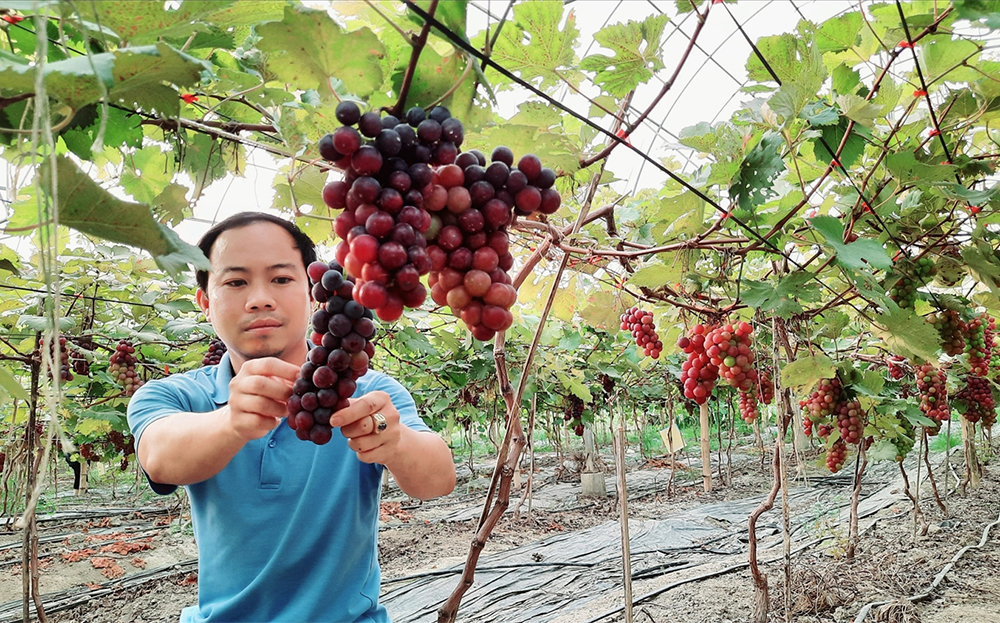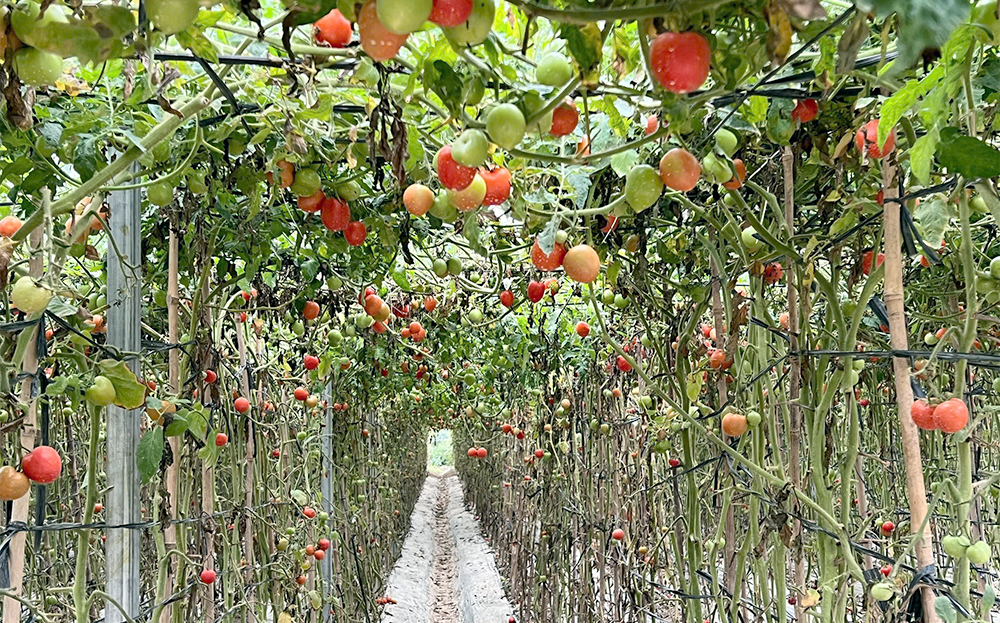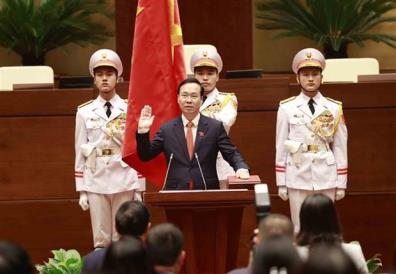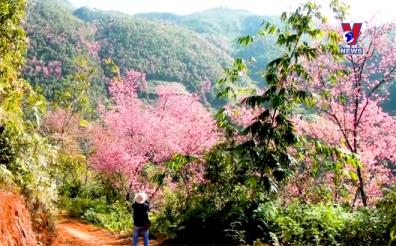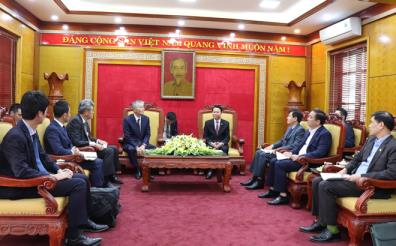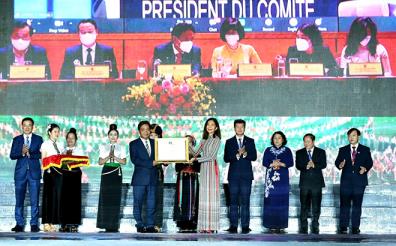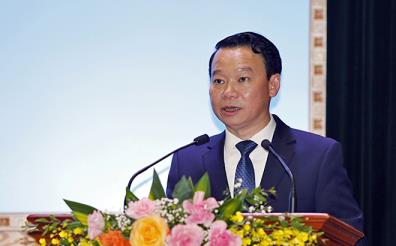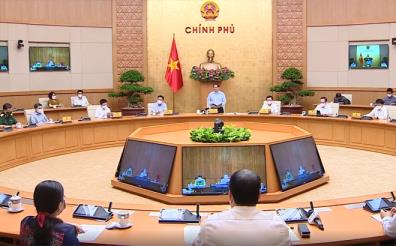This performance has helped the province maintain its position as the second-highest performer among the 14 provinces in the Northern Midland and Mountainous Region. Contributing to this success is a strategic shift in mindset from "agricultural production" to "agricultural economy", with a strong emphasis on applying scientific and technological advancements and actively engaging with the market to stabilize product output in line with the trend of modern, sustainable agriculture.
In the past, local farmers were primarily engaged in traditional crop cultivation. However, in recent years, under the guidance and support of local authorities, there has been a growing trend toward restructuring crop patterns, expanding high-value crops, and integrating science and technology to improve yields and product quality. In the highland district of Mu Cang Chai, for example, local farmers are capitalizing on favorable climate and soil conditions to introduce advanced agricultural practices.
A prime example is Giang A Mui from La Khat Hamlet, Nam Khat Commune, who has successfully implemented a VietGAP-standard beef tomato cultivation model in greenhouse conditions. "The beef tomato variety adapts well to Mu Cang Chai’s climate. With greenhouse investment and clean mountain water irrigation, the tomatoes yield well, with high quality, and are less susceptible to pests and chemical usage,” he shared.
With 85% of its land devoted to agriculture, 80% of the population living in rural areas, and nearly 60% of the labor force engaged in agriculture, Yen Bai has consistently prioritized resource allocation for rural and agricultural development. The province has established zoning for key agroforestry products based on its natural advantages, and has introduced comprehensive resolutions, policies, and initiatives to support production. This includes the development of concentrated and specialized agricultural production areas that lay the foundation for sustainable growth.
The high-yield beef tomato
greenhouse model of Mr. Giang A Mui in La Khat Hamlet, Nam Khat Commune.
By leveraging ecological diversity and comparative advantages, Yen Bai has now clearly defined large-scale, specialized commodity production zones for ten core agricultural products. Many of its agricultural exports, such as cinnamon, tea, cassava starch, bamboo shoots, and processed wood products, have earned tens of millions of dollars in export revenue, accounting for 30–40% of the province’s total export value. The province has also developed over 300 OCOP products rated three stars or higher, planted over 15,500 hectares of forest annually, and maintained one of the highest forest coverage rates in the country.
In tandem with agricultural growth, a new generation of dynamic, skilled, and innovative farmers is emerging in Yen Bai. These farmers are not only applying sensor technology to monitor humidity and light levels in fruit orchards and high-tech vegetable gardens but are also leveraging e-commerce platforms such as Shopee, Tiki, Lazada, and social media networks like Facebook and TikTok to market and sell their products. As Luc Van Anh, Director of "Sau Khong Farm” Cooperative in Yen The Town, Luc Yen District, noted: "The adoption of digital technology has brought many benefits to the cooperative’s production and distribution. In the coming period, we will continue to invest in digital transformation to enhance production control and expand into larger markets nationwide”.
In 2025, the province approved over VND 24.7 billion to implement agricultural, forestry, and fisheries development support policies. This includes 18 value chain-linked production projects, 464 livestock farms shifting toward commercial or organic specialty production, three cooperatives and groups focused on buffalo and cattle farming, and six hectares of sustainably managed plantation forests. Yen Bai is also promoting the replication of high-efficiency production models and supporting policy implementation and management costs—thereby generating strong momentum for agricultural development.
Looking ahead, Yen Bai will further promote the transfer of scientific and technical knowledge to farmers, facilitate investment from enterprises into agriculture, and develop sustainable production chains based on contractual agreements tailored to market demands. The province will continue implementing effective agricultural development policies for the 2021–2025 period, reaffirming the sector as a driving force and pillar of the economy, contributing to sustainable socio-economic growth.
Thanh Chi
